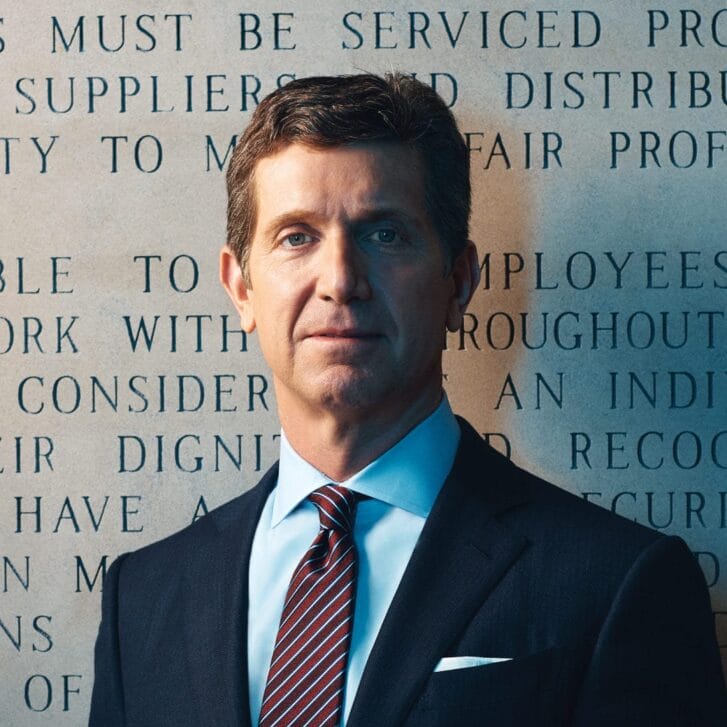For most of his life, Myron Weiner WG51 read technical and management books. He was a professor at University of Connecticut’s School of Social Work, Masters of Public Affairs and Institute of Public Service and had been in the “computer game” since serving as a radar technician in World War II. Then he retired to emeritus status, moved into a condo complex and joined a reading group. It blew his mind.
What follows are some of the titles that have since stuck with him, as well as a couple books that touch back on his life-long professional interests.
 All the Light We Cannot See – Anthony Doerr
All the Light We Cannot See – Anthony Doerr
Winner of the 2015 Pulitzer and the 2015 Andrew Carnegie Medal, Anthony Doerr’s 2014 novel is a work of great literature—which admittedly, Weiner doesn’t often read. Weiner looks for great stories. But he can appreciate the WWII storyline as well.
Becoming Steve Jobs – Brent Schlender
 If you can only read one Jobs’ biography, read this one by journalists Brent Schlender and Rick Tetzeli, says Weiner (an Apple user). It’s the human, unedited take on the Apple co-founder, one gained from decades of research and personal interaction (contrasted with the more “canned” version authored by Walter Isaacson).
If you can only read one Jobs’ biography, read this one by journalists Brent Schlender and Rick Tetzeli, says Weiner (an Apple user). It’s the human, unedited take on the Apple co-founder, one gained from decades of research and personal interaction (contrasted with the more “canned” version authored by Walter Isaacson).
Benjamin Franklin – Walter Isaacson
 Walter Isaacson (who also wrote a Jobs biography) gets high marks for the depth with which he details Franklin’s seemingly contradictory natures—his pivotal public diplomacy versus his tempestuous private relationships—as well as his unprecedented scientific and business innovations. The book was published in 2003, but brought to Weiner’s attention recently by his grandson.
Walter Isaacson (who also wrote a Jobs biography) gets high marks for the depth with which he details Franklin’s seemingly contradictory natures—his pivotal public diplomacy versus his tempestuous private relationships—as well as his unprecedented scientific and business innovations. The book was published in 2003, but brought to Weiner’s attention recently by his grandson.
Boys in the Boat – Daniel James Brown
 Weiner loves great stories, and this 2013 historical novel by Daniel James Brown is a good one. Undoubtedly a hard-working man his entire life, Weiner was struck by the training, commitment and overall effort displayed by the University of Washington’s nine-man crew team on its way to winning the gold medal at the 1936 Berlin Olympics.
Weiner loves great stories, and this 2013 historical novel by Daniel James Brown is a good one. Undoubtedly a hard-working man his entire life, Weiner was struck by the training, commitment and overall effort displayed by the University of Washington’s nine-man crew team on its way to winning the gold medal at the 1936 Berlin Olympics.
One Hundred Years of Solitude – Gabriel Garcia Marquez
 Weiner’s book club read the masterpiece by Gabriel Garcia Marquez after the Nobel Prize winner’s death in 2014. Readers can approach the 1967 novel in many, many ways, wondering at its magical realism or pondering its messages about nation and state. Weiner sees in it the grounded reality of how tough day-to-day life can be. Weiner’s biggest takeaway: One thing all of us can’t deal with is being by ourselves, which we do everything to try to escape.
Weiner’s book club read the masterpiece by Gabriel Garcia Marquez after the Nobel Prize winner’s death in 2014. Readers can approach the 1967 novel in many, many ways, wondering at its magical realism or pondering its messages about nation and state. Weiner sees in it the grounded reality of how tough day-to-day life can be. Weiner’s biggest takeaway: One thing all of us can’t deal with is being by ourselves, which we do everything to try to escape.
Platform for Change – Stafford Beer
 In this classic 1995 tome and in his other writings, “Father of Management Science” Stafford Beer predicted exactly what is happening in the world today: money is no longer the ultimate goal of organizations, it is a constraint; eudomony, or the sense of well-being, is now society’s goal; and this is attained through variety and the law of cybernetics, roughly defined by Weiner as every individual’s right to shape their life in any way the want. Companies market to individuals now in a world that’s far from simple and ever-more complex.
In this classic 1995 tome and in his other writings, “Father of Management Science” Stafford Beer predicted exactly what is happening in the world today: money is no longer the ultimate goal of organizations, it is a constraint; eudomony, or the sense of well-being, is now society’s goal; and this is attained through variety and the law of cybernetics, roughly defined by Weiner as every individual’s right to shape their life in any way the want. Companies market to individuals now in a world that’s far from simple and ever-more complex.
Reclaiming Conversation – Sherry Turkle
 Once upon a time, as Weiner recalls, people were scared of computers. He once snuck one into his classroom in a Manischewitz matzo box. Now, we’re hooked on them like a drug. People bond with the pieces of glass, plastic and metal in their hands. MIT sociologist Sherry Turkle makes the case in her 2015 book that we’ve gone too far. People are allowing their devices to take away their humanness.
Once upon a time, as Weiner recalls, people were scared of computers. He once snuck one into his classroom in a Manischewitz matzo box. Now, we’re hooked on them like a drug. People bond with the pieces of glass, plastic and metal in their hands. MIT sociologist Sherry Turkle makes the case in her 2015 book that we’ve gone too far. People are allowing their devices to take away their humanness.
Published in the Spring/Summer 2016 issue of Wharton Magazine.


























